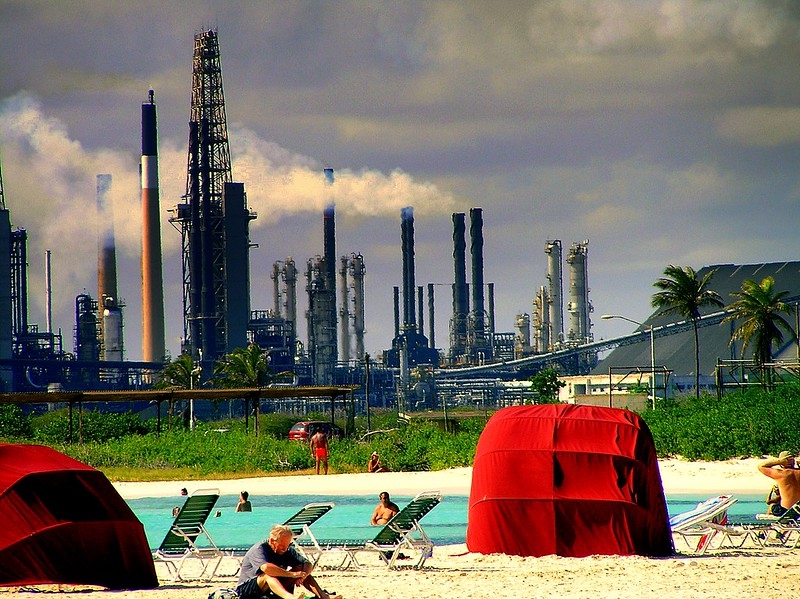- Body of Osman Hadi Returns to Dhaka From Singapore Late |
- Fakhrul condemns attacks on media, calls for unity, justice |
- 2 cops among 4 hurt in clash outside Indian Assit H.C. in Ctg |
- Inqilab Moncho urges people to avoid violence |
- Hadi’s death: Prothom Alo, Daily Star offices set afire |
Fossil Fuel Expansion Threatens Ocean Biodiversity

A newly released report by Earth Insight, in collaboration with 16 environmental organizations, has sounded a global alarm over the unchecked expansion of offshore oil and gas projects into some of the world’s most biologically rich and ecologically sensitive marine environments.
Titled Ocean Frontiers at Risk: Fossil Fuel Expansion Threats to Biodiversity Hotspots and Climate Stability, the report reveals that 2.7 million square kilometers of ocean territory—nearly the size of India—have been opened to oil and gas exploration. Much of this expansion is occurring within or adjacent to protected areas and biodiversity hotspots.
The findings are based on a detailed spatial analysis of 11 case study regions, using data from government ministries, investor briefings, and independent mapping efforts. The report was released ahead of the 3rd UN Ocean Conference (UNOC3), being held this week in Nice, France.
Tyson Miller, Executive Director of Earth Insight, spoke to Inter Press Service (IPS) about the research.
“Our unit selected 11 frontier regions and built a dataset from publicly available sources, supplementing it with digitized data where government information was lacking,” Miller said. “It was shocking to see the scale of planned oil and gas expansion and LNG development—especially in some of the world’s most sensitive ecosystems.”
Critical Habitats at Risk
The report warns of severe ecological impacts as fossil fuel activities encroach on coral reefs, mangroves, seagrass meadows, and Important Marine Mammal Areas (IMMA). Many of these habitats fall within existing or proposed Marine Protected Areas (MPAs) and Key Biodiversity Areas (KBAs), which the global community has pledged to protect under initiatives such as the 30×30 goal—preserving 30% of land and sea by 2030.
“Expanding marine protected areas is essential,” Miller stressed. “Safeguarding them from oil and gas development should be a given. Yet the extent of overlap between oil blocks and critical habitats is deeply troubling.”
In the Gulf of California—dubbed "the world's aquarium"—LNG projects now threaten a marine ecosystem that supports 39% of all known marine mammal species and sustains hundreds of millions in fisheries. Despite public opposition and delayed environmental assessments, fossil fuel activities in the area continue.
In the Indian Ocean, oil and gas blocks now overlap 98% of the Saya de Malha Bank, one of the world’s largest seagrass meadows, which stores up to 10% of the ocean’s annual carbon despite occupying just 0.2% of its surface.
“There are efforts to establish a Marine Protected Area there,” said Miller. “Excluding oil and gas operations from it would be a major step forward.”
Pressure on the Global South
The report also highlights how countries in the Global South are increasingly targeted for fossil fuel extraction. These nations—often facing debt crises and climate vulnerabilities—are being courted by foreign energy companies with promises of investment, jobs, and energy independence.
“Many of these governments face immense financial pressure,” Miller noted. “Debt relief and payments for ecosystem services could be more effective tools to safeguard coastlines. Without such support, officials may approve projects that ultimately cause more harm through pollution, habitat loss, and cleanup costs.”
Earth Insight also references the Ocean Protection Gap Report, which identifies billions in promised but undelivered funding for marine conservation and climate resilience in low-income countries.
Indigenous and Local Resistance
Despite these challenges, grassroots resistance is growing. In Mexico’s Gulf of California, local opposition has delayed LNG terminal approvals due to the lack of proper environmental reviews. Similar campaigns in the Philippines, Papua New Guinea, Mozambique, and other regions continue to push for ecological justice, transparency, and a halt to extraction projects.
“Frontline and Indigenous communities are doing incredible work—often at great personal risk and with limited resources,” Miller said. “They deserve stronger support and more visibility to advance their vision for a sustainable future.”
Yet, the report underscores that these communities are often up against powerful corporate and political forces, making their struggle not only environmental but also a fight for democratic rights, land sovereignty, and long-term control of natural resources.
Policy Roadmap and Global Call to Action
The report outlines a policy roadmap for global leaders, particularly ahead of forums like COP and the UN Ocean Conference. Key recommendations include:
-
Halting new coastal and offshore fossil fuel developments, especially in ecologically sensitive regions.
-
Canceling unassigned oil and gas blocks and stopping new exploration licenses.
-
Ending financial support—including insurance and investment—for fossil fuel projects.
-
Redirecting capital to offshore renewable energy like wind and solar.
-
Ensuring a just transition, with full decommissioning of abandoned infrastructure.
-
Restoring ecosystems already damaged by fossil fuel operations.
-
Strengthening global legal frameworks and supporting the Fossil Fuel Non-Proliferation Treaty.
“It’s time for global leaders to take bold, enforceable actions,” Miller said. “If the UN Ocean Conference is to be taken seriously, it must directly confront the growing threat of fossil fuel industrialization in our oceans.”

